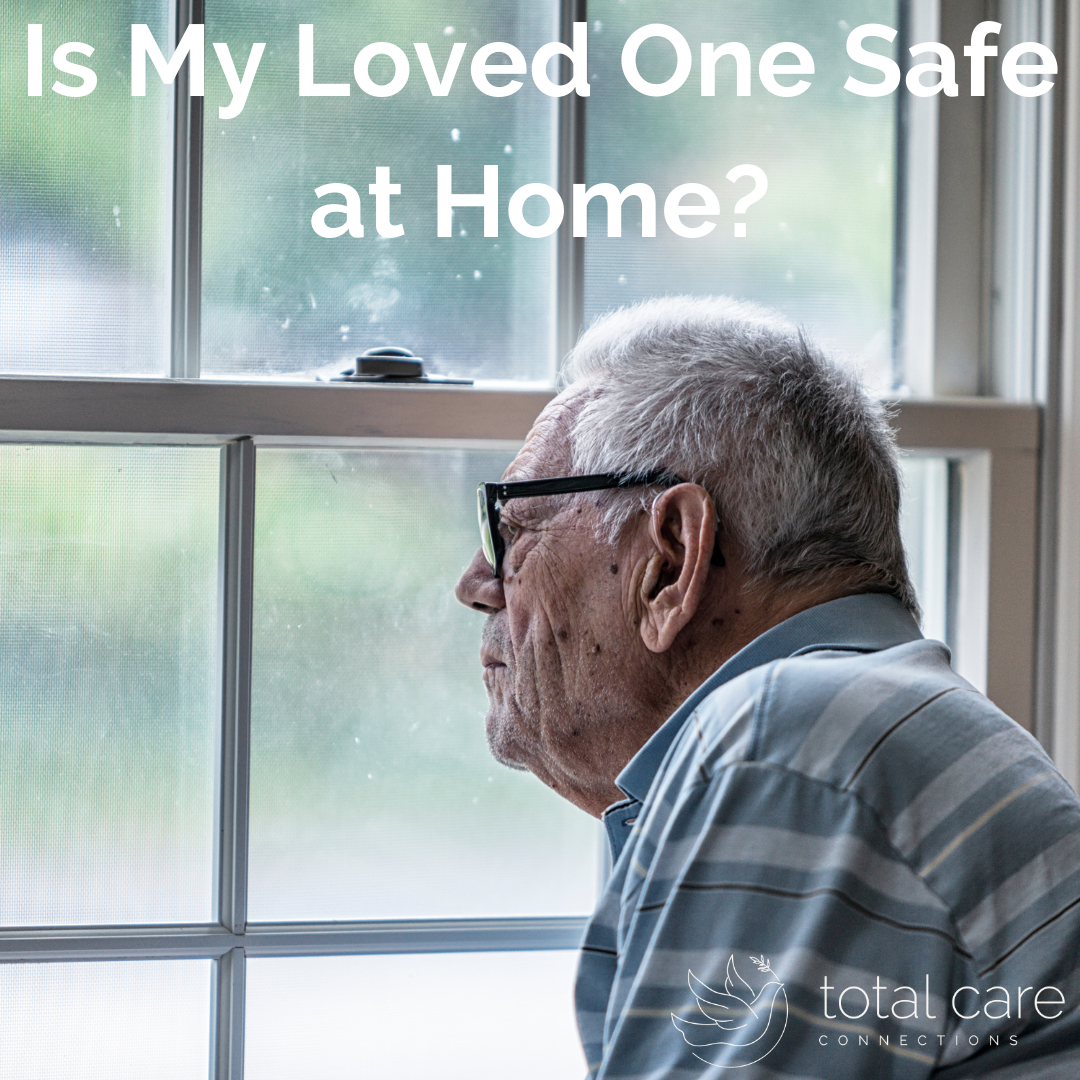The Alzheimer’s Association reports that 6.2 million Americans currently live with Alzheimer’s disease. That number is expected to more than double to 12.7 million by the year 2050. Even more shocking is that the number does not include seniors living with other types of dementia. What does all of this mean? It means that if you currently do not know someone who is living with Alzheimer’s disease or another type of dementia, you will sometime in your life.
Family members often come to us here at Total Care Connections worried about their loved one who was recently diagnosed with Alzheimer’s disease or another type of dementia. While each client and situation is unique, there are some common questions that our experts answer on a regular basis, including how to ensure everything is safe at home.
We thought we’d cover the common question about safety here.
Safety Red Flags for Those Living with Alzheimer’s Disease and Other Types of Dementia
Alzheimer’s disease is progressive, which means that while some interventions, including medications, can slow the cognitive decline that accompanies the condition, the disease itself will continue to cause challenges for the person living with it. Safety is a major concern when it comes to Alzheimer’s disease not only because of the symptom of confusion or forgetfulness, but also because the condition affects important critical thinking skills and judgment.

Here are a few warning signs that could indicate your loved one is not safe to live at home alone without support:
- Becoming lost while out on walks or driving to run errands
- Dressing inappropriately for the weather
- Leaving expired items in the fridge or cabinet
- Keeping doors unlocked when leaving the house
- Decreased attention to personal hygiene
- History of falling while inside or outside of the home
- Sleep disturbances, including insomnia
- Wandering, or walking without purpose, in the evenings or at night
Your Next Steps
If your loved one is showing signs of increased confusion or decreased ability to maintain daily activities, it doesn’t automatically mean they must move out of their home and into a senior living community. In fact, with the right type of support and resources in their home, they will find that they are able to have a higher quality of life while staying in the home they love.
At Total Care Connections, our caregivers, nurses, and team works closely with clients who are living with Alzheimer’s disease and other types of dementia. Our approach to care puts the client’s preferences and needs at the center of the care plan, ensuring care is customized to each individual we serve. This means that sometimes we pop in for meal preparation and companionship a few hours per day for some clients while other clients thrive when we are there to assist with evening or nighttime care. In all cases, we are there to ensure safety as well as to encourage socialization and routine.
If you are concerned about your loved one, or if they just received a diagnosis and you want to be proactive in your family plans, we would be honored to serve you. Call us today to schedule a free assessment and talk more about your specific situation.
